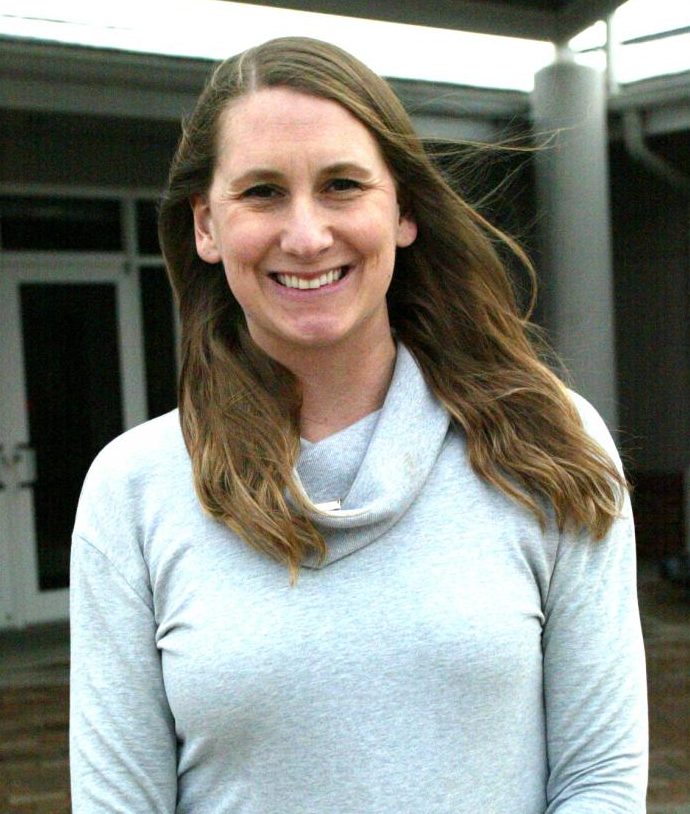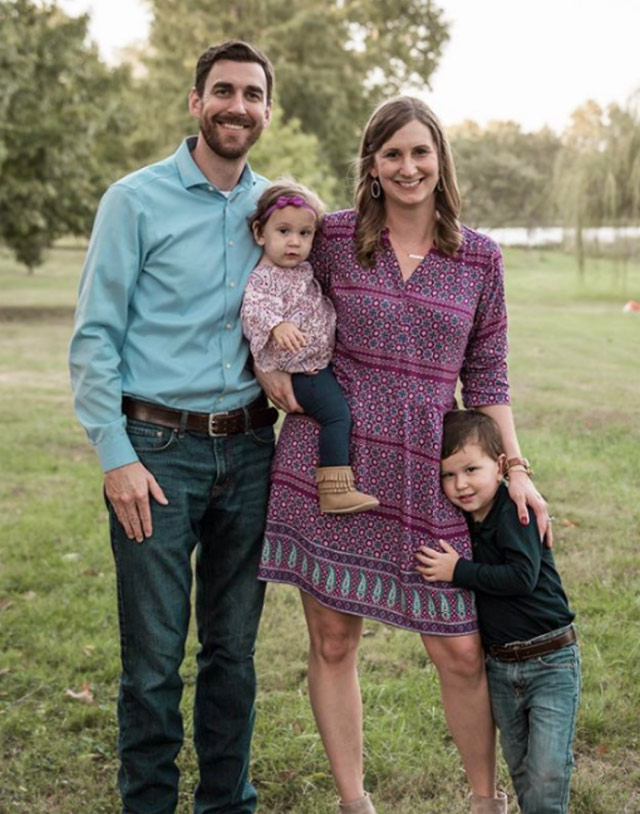Some say it takes a village to raise a child, but the birth of Concord resident Jessica Grib’s second child proves that sometimes it takes a village to save the mother.
Grib survived massive heart failure after giving birth to her second child in 2016, something her doctors called a “miracle.”
 Now 34, Grib in 2017 co-founded Save The Mommies, a nonprofit dedicated to raising awareness of pregnancy-induced heart failure and peripartum cardiomyopathy or PPCM — heart failure that occurs during the last month of pregnancy up until five months postpartum.
Now 34, Grib in 2017 co-founded Save The Mommies, a nonprofit dedicated to raising awareness of pregnancy-induced heart failure and peripartum cardiomyopathy or PPCM — heart failure that occurs during the last month of pregnancy up until five months postpartum.
A vocal advocate about PPCM, Grib led an effort encouraging Gov. Mike Parson to pass a proclamation declaring May 3 through 9 as “PPCM Awareness Week” in Missouri, which he did in February. The governors of Nebraska and Tennessee also passed similar proclamations recognizing the week before and the week of Mother’s Day as special PPCM weeks.
Now a speech-language pathologist, Grib is a St. Louis native and was raised in St. Louis Hills before moving to South County when she was in sixth grade. She met her husband Kevin in high school, and the two began dating when they were 16 years old.
Grib and Kevin married in October 2010 and in 2014, their first child, son Noah, now 5, was born after 41 hours of labor. With Grib’s second pregnancy a few years later in 2016, her husband Kevin thought at the time, “There’s no way it will be any worse than it was with Noah.”
But looking back, Kevin said, “It turns out it was.”
The pregnancy was normal until about 34 weeks, when Grib’s blood pressure spiked.

Her doctor told her to come in and “bring a bag because you might be staying,” said Grib. Everyone’s first concern was for the baby, who was breech. But it wasn’t until after the infant, a girl named Amelia, was delivered by C-section that things took a turn for the worse.
“I knew something was really wrong… her heart rate was all over the place, her O2 levels were falling,” Kevin Grib said. “There were a lot of doctors that began rushing in… and they asked me to get out of the way.”
With her heart failing, Grib was transferred from Mercy to Barnes-Jewish Hospital. After surgeons stabilized her, the Grib family — which had expected to end that night in celebration of a new family member rather than hoping to save an existing one — had to face bad news: Grib was too weak for a heart transplant. Doctors told her family that her kidneys and other vital organs were shutting down.
“We asked if there was any good news, and he (the doctor) said, ‘Well, she made it this far,’” her father Charles Gilum said.
Once they could visit her, the reality of the situation hit home for Kevin and the other members of the family.
“Seeing that heart monitor flat — it’s one thing to talk about it, it’s another to see that there’s no heartbeat there,” Kevin said.
Doctors implanted a heart pump in Grib to give her heart time to recover. In addition, Grib was placed on extracorporeal life support, or ECMO, a treatment that uses a pump to circulate blood through an artificial lung back into the bloodstream.
With a new baby just born, the family had to prepare for the worst.
Kevin’s mother Colleen Grib said, “While I am holding my son in my arms, I was thinking, ‘What are we gonna do if she doesn’t make it?’ But the family all came forward.”
Kevin’s sister flew in from New York and helped raise Amelia for the first 10 days.
“My parents took turns, sleeping on an air mattress in their 60s,” Kevin said. “They were taking care of the night feedings.”
One day while visiting Grib during her recovery, her family saw some slight heart movements on the monitor.
The first time the expanded family was together was an emotional, long-awaited day: Amelia was already 2 weeks old.
But Grib was far from being out of the woods. Doctors still had to remove her heart pump, in yet another delicate surgery. And it worked.
“Her heart had repaired itself enough,” Colleen said.
When Grib was able to go home, she was too weak to walk into the house and couldn’t do much more than sit on the couch inside. But the family was “finally together back home,” her husband said.
Grib’s family members give her the credit for surviving such an ordeal to raise her family. But she gives the credit to her family for coming together to support her in her time of need.
“To know the tribe of people that came in and helped my family get through this terrible time was amazing, and I am still thanking them to this day,” Grib said. “Heart recovery to me means I get to be the wife and mother that I’ve always wanted to be, and I get to do a job that I love (speech-language pathologist). Overcoming all that we have, my biggest takeaway is that family means everything. And they’re worth fighting for.”



